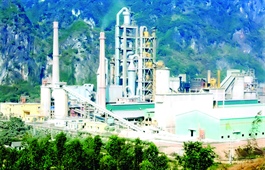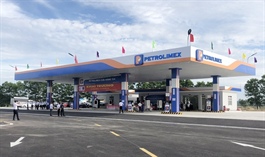Vietnam urged to upgrade to attract big rubber funding
Vietnam urged to upgrade to attract big rubber funding
Vietnam’s rubber industry is exerting every effort to meet global sustainability standards.
As international purchasers increasingly demand products that adhere to strict ethical, legal, and environmental standards, analysts and foreign buyers, including those from the United States and Germany, warn that a lag in production is likely to jeopardise Vietnam’s rubber sector.
Vietnam has the fifth-largest rubber cultivation area in the world with almost 940,000 hectares. However, the country ranks third globally for its output, producing some 1.26 million tonnes in 2020, according to a report by the Vietnam Rubber Association.
According to the same report, exports of natural rubber products (rubber blocks and concentrated latex), rubber products (tyres, medical supplies, and shoe soles), as well as rubber timber, have increased dramatically from $2.9 billion in 2015 to approximately $9.5 billion in 2021.
According to Jeff Martin, CEO of Yulex – a global company headquartered in the US, international brands like Hermes Paris, Timberland, Hunter, H&M, Apple, and Lego are prioritising sourcing rubber from producers with Forest Stewardship Council (FSC) certifications, the industry’s gold standard in terms of meeting legal and environmental criteria.
Martin came to Vietnam two weeks ago to survey some rubber firms and household growers. He said that the company needs over 120,000 tonnes of natural rubber per year to supply for the manufacturing and consumer goods sectors. Vietnamese firms and farmers’ households can partner with Yulex to produce and export rubber.
He added that the trend of green consumption focusing on product quality and traceability is on the rise globally. Yulex is committed to purchasing FSC-certified rubber at a higher price than the market average by 10-15 per cent.
The company is eager to work with Vietnamese producers that could obtain FSC certifications. “We can give them a supply agreement, such that we could have negotiated prices that will show a significant premium to what they would get for either selling FSC in the marketplace, or just selling commodity rubber in the marketplace,” he noted.
The supply chain has been trying to recover after two years of restrictions. Foreign brands and buyers are calling for Vietnam and other nations to increase transparency in their supply chain and more foreign buyers are willing to pay for it.
In another development, Weber and Schaer, one of the leading specialist importers of natural rubber and natural latex in Europe, also aims to source FSC-certified rubber from Vietnam with appropriate incentives. Hans Evers, sustainability manager of Weber and Schaer, is committed to purchasing Vietnam’s sustainable natural rubber at high prices.
FSC could offer Vietnam the ability to attract potential buyers as well as expand its share in the markets with a larger number of eco-conscious consumers. However, Vietnam faces enormous challenges in clearing up its rubber supply chain, according to To Xuan Phuc, a senior policy analyst at US-based non-profit organisation Forest Trends.
“It is unlikely for Vietnam’s rubber industry to make the FSC grade given its weak supply chain including some 265,000 smallholders and hundreds of firms, and state-owned companies dominate the sector thanks to their control of vast land banks,” Phuc said.
Rubber space owned by large holders, mainly state-owned companies, accounts for 455,000ha or almost half of the total rubber plantation area in Vietnam. The remaining area is occupied by smallholders. The rubber output by smallholders posts consistent year-on-year growth, accounting for 57-62 per cent of Vietnam’s total natural rubber.
Phuc cited a report by Forest Trends showing that the rubber yield by smallholders has surpassed that of large holders by over 8 per cent. It is also higher than the average yield of member nations under the Association of Natural Rubber Producing Countries. This is because most smallholders use high-yield rubber varieties for their crops. Rubber plantations have been decreasing for the past 10 years, losing 10,000–20,000ha per year on average because businesses convert rubber to other crops or industrial developments.
“Supply chains are long and in many cases, it is impossible to trace the product along the chains,” Phuc said. “This is in part because many rubber companies do not pay the right attention to producing certified rubber due to a lack of information. Some companies only focus on export markets that do not require certifications like China. In addition, the supply chain is complex, involving both smallholders and firms as well as domestically produced and exported rubber.”






















